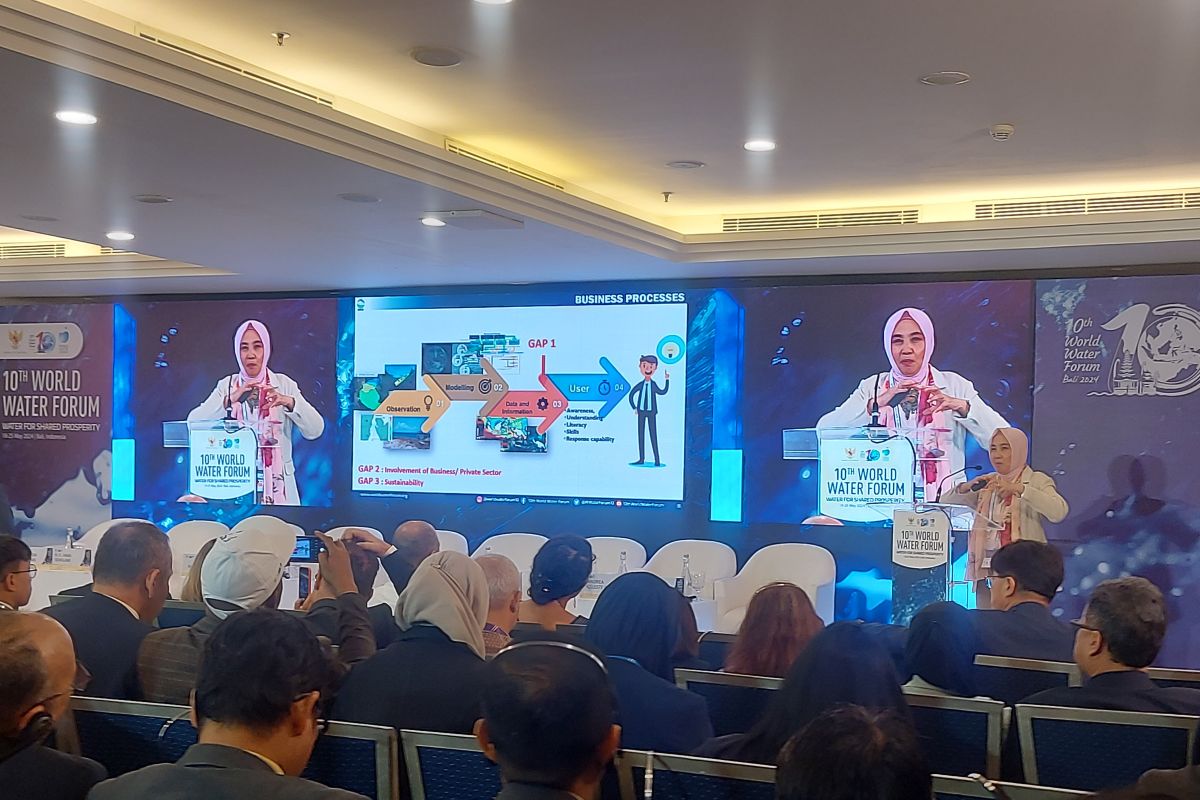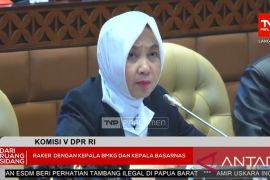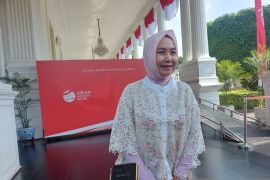Head of BMKG Dwikorita Karnawati provided detailed information about TMC to Tunisian Minister of Agriculture, Hydraulic Resources, and Fisheries, Abdelmonaam Belaati, in a session of the 10th World Water Forum (WWF) conference at the TMC Command Post at the Ngurah Rai International Airport, here on Sunday (May 19).
Through information received here on Monday evening, Karnawati stated that at the meeting, Indonesia considers the implementation of TMC to be a fairly good strategy in mitigating the impacts of climate change, such as drought.
The agency head cited the example that in mid-2015, 2016, and 2019, Indonesia was hit by extreme drought caused by the El Nino phenomenon, which triggered several cases of forest and land fires.
Karnawati pointed out that this incident caused Indonesia to bear extensive losses and made people suffer the economic, social, and health brunt.
She said this could occur, as El Nino could make land quite dry and sensitive to forest fires.
"Naturally, if tree branches rub against each other, fires can occur," she stated.
However, since this incident, the Indonesian government has conducted comprehensive analysis and finally found the best formulation to anticipate fires through a series of weather modifications.
Using a plane, TMC is carried out by sowing salt (NaCl) into rain clouds in areas prone to forest and land fires.
Karnawati said that through the use of this technology, Indonesia is currently able to reduce forest and land fire cases by around 80-90 percent. This percentage is based on the results of BMKG analysis while facing El Nino in 2023.
Tunisian Minister of Agriculture, Hydraulic Resources, and Fisheries Abdelmonaam Belaati gave a positive response and commended BMKG's success in implementing TMC to overcome the impact of drought.
Abdelmonaam expressed his interest in knowing more about Indonesia's success in implementing TMC, so that it could be emulated in his country.
He conveyed this interest, considering that climate change had triggered a drought in Tunisia, which caused water supplies to decrease over the last five to seven years.
He remarked that to overcome the problem of drought, Tunisia is currently desalinating sea water to make it fit for consumption for living creatures.
The country is also considering ways of utilizing treated and used water.
"And another solution is how to modify the weather. How can we bring rain to a country? That is very important and that is why we are here, and hope, we can continue to work together," he remarked.
Pewarta: M. Riezko Bima Elko Prasetyo, KatrianaEditor : Rustam Effendi
COPYRIGHT © ANTARA 2026








